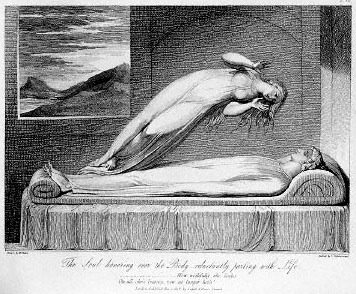
Stephen T. Davis is currently Russell K. Pitzer Professor of Philosophy, Emeritus, at Claremont McKenna College in California. Some time ago, I read his book After We Die: Theology, Philosophy, and the Question of Life after Death (Waco: Baylor University Press, 2015). Now, I’m beginning to extract notes from it:
Many mental states are characterized by what philosophers call “intentionality.” That is, they have the property of “aboutness.” They are about something; they point to things, as objects or as targets, that are “outside” themselves. When I decide to open a door, for instance, my decision is, at least in substantial part, about a door. My dislike for coconut — sorry, but I do hate it — is about coconut.
However, according to the “identity theory” of mind and brain, “thoughts” are merely and only or even just essentially brain processes. As critics of “identity theory” point out, though, the firing of nerve endings in the brain has no intentionality. “Brain events are simply electrical-chemical events in a human body — they don’t refer to or represent or aim at anything” (18). (Electrical events in the wiring of my house are never “about” Shakespearean tragedy or contemporary political issues or how I should dress for tonight’s party. The chemical process that rusts some of the metal in my back yard doesn’t “refer” to anything. It just happens. It just is.
Mental events, unlike brain events, don’t seem to have physical location, or size, or shape, or velocity. “If they did, and if (as claimed) they were entirely physical, then surgeons would in theory be able to locate somewhere in my brain the decision to shut the door or my dislike of lima beans” (18).
Finally, mental states are characterized by what philosophers call “privacy,” that is, they are directly available only to the person who has them. I can be directly aware of my decision to shut the door, but you can only observe that I have apparently made a decision to shut the door by observing my door-shutting behavior. But if identity theory is true, then my decision to shut the door is nothing more than a certain combination of physical events in my brain. Thus, in principle, if we knew enough about the brain and knew where to look, other people could observe my decision. And this has seemed to many philosophers absurd. (18)
Believers in reincarnation and [intrinsic] immortality . . . must be dualists [i.e., must reject identity theory]. That is, if some version of mind-body materialism turns out to be true, those two theories are false. Believers in resurrection can be either dualists or materialists. (18-19)












